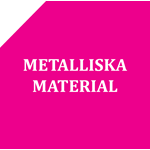Projektinitiativ #104: Assessing the credibility of Integrated Computational Materials Engineering models for robust design of metal products ( 1 kommentar)

Numerical modelling of industrial products and manufacturing operations is often indicated as an effective tool to minimize the cost of the development of new products. In spite of the broad popularity of Computer Assisted Engineering (CAE) techniques in industrial practice, a comparatively little effort is usually devoted to the analysis and quantification of uncertainties that affect the inputs and outputs of the models developed and managed by the CAE teams.

Approximations and uncertainty in physical parameters, boundary conditions, geometry and loads introduce variability in the output, even for fully deterministic models. The analysis of uncertainty in the computed output is a key step to put the validation of models against experimental data on a quantitative basis and, ultimately, to assess the credibility of the models as tools to support and optimize the design and manufacturing of industrial products. An illustrative example of the how the u ncertainty in design parameters impact on the outcome of product development is offered by material properties, for which the availability of experimental data is typically quite limited, especially in the early stages of the design process. Nominal or characteristic material properties, based on information from a variety of sources (e.g. scientific literature, suppliers, experts), are then assumed as input to the models developed to assess the performance of a design under various loading conditions. The uncertainty associated with the material parameters is often overlooked (or taken into account via safety factors), thus leading to overly conservative designs and costly development processes heavily relying on physical prototype testing.
Integrated Computational Materials Engineering (ICME) emerged from the early 2000s as a novel paradigm to the design of engineering products through the combination of computational mechanics and physics-based material models. By quantifying and capturing the influence of specific details of manufacturing processes and material variations on relevant physical properties, ICME provides a structured framework for robust product design, optimizing the allocation of resources for physical testing. A number of cases focused primarily on structural metals for automotive and aerospace components have shown the potential of ICME as a systematic approach to accelerate the development and adoption of materials with tailored properties for industrial applications. A key ingredient for the successful implementation of ICME in industrial practice is the assessment of the credibility of the models developed in the multiscale ecosystem, together with the robustness of their interfaces.
In this proposal, we would like to develop uncertainty quantification and validation methods for ICME applications targeting metallic materials. The proposal aims at formulating a strategy to secure the quality-control of computational models throughout the entire virtual development chain, from the design of an end-product based on high-level requirements to the computational screening of alternative material structures. The project would address the robustness against variation, parameter sensitivity and predictive capability of single models developed to quantify specific physical properties as well as the propagation and possible loss of information across the whole range of relevant length and time scales. Standardization of materials modelling terminology and metadata (in line, for example, with the discussion recently started at the European Committee for Standardization) and quality-assurance in simulation data management are also within the scope of the proposal.
Namn Fabio Santandrea
Organisation RISE
Kommentar #1
Hi,
A very interesting proposal. Quality measures of software is necessary to guarantee that we do not produce unreliable simulation rresults.
I am interesting to take part in preliminary discussions on this topic.
I am behind proposal #1 and #30.
Namn Anders Salwén
Organisation InnoXinetix AB

